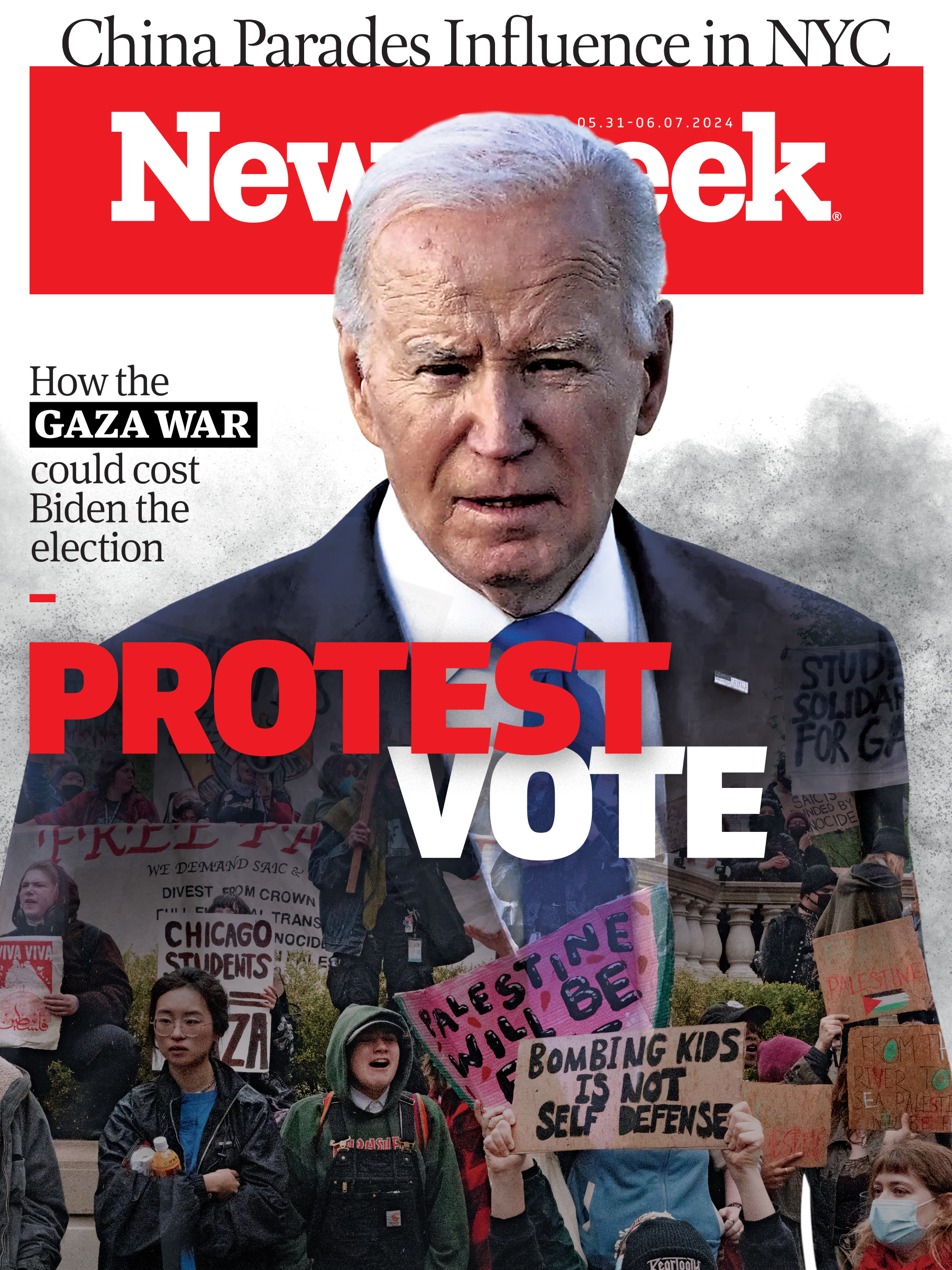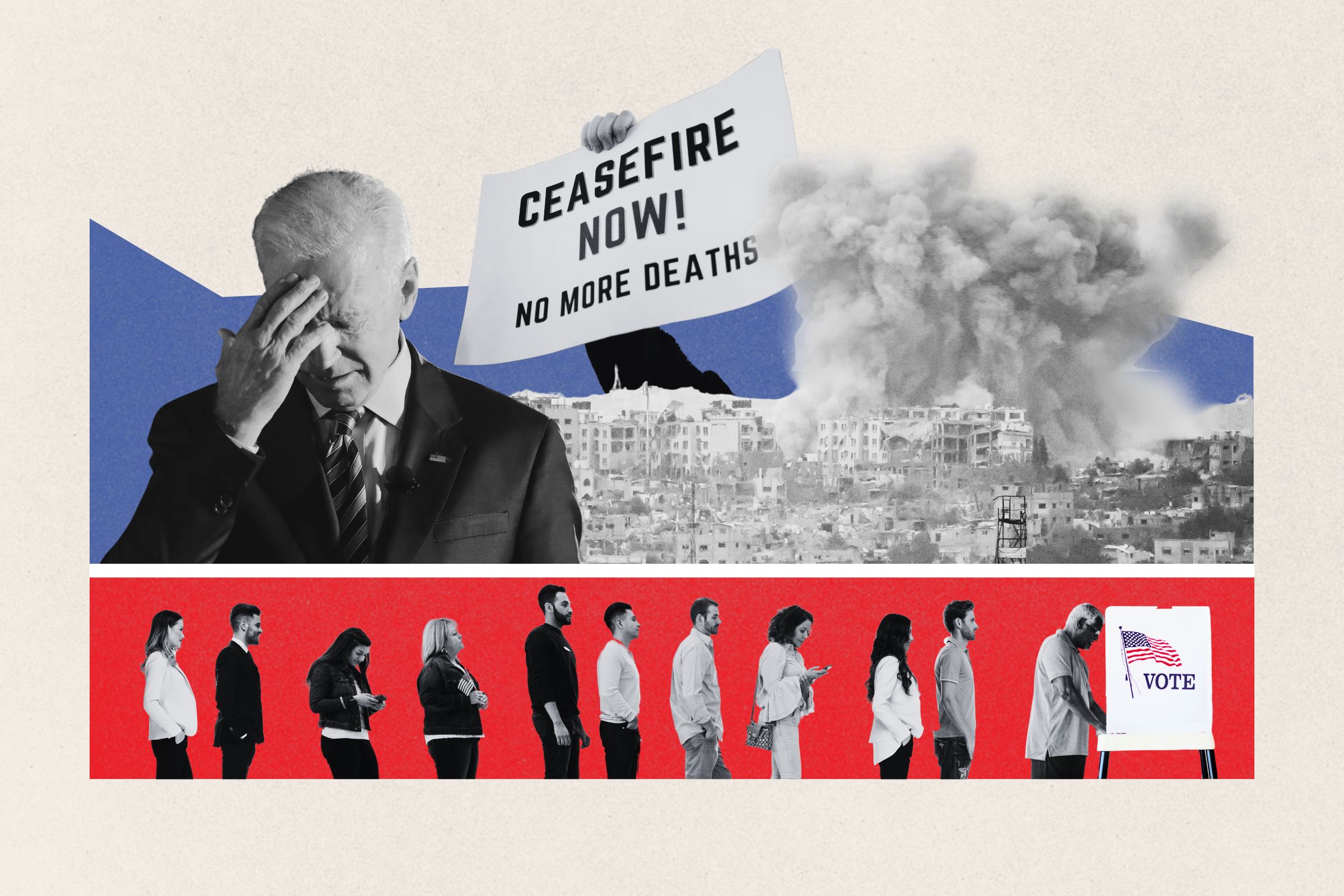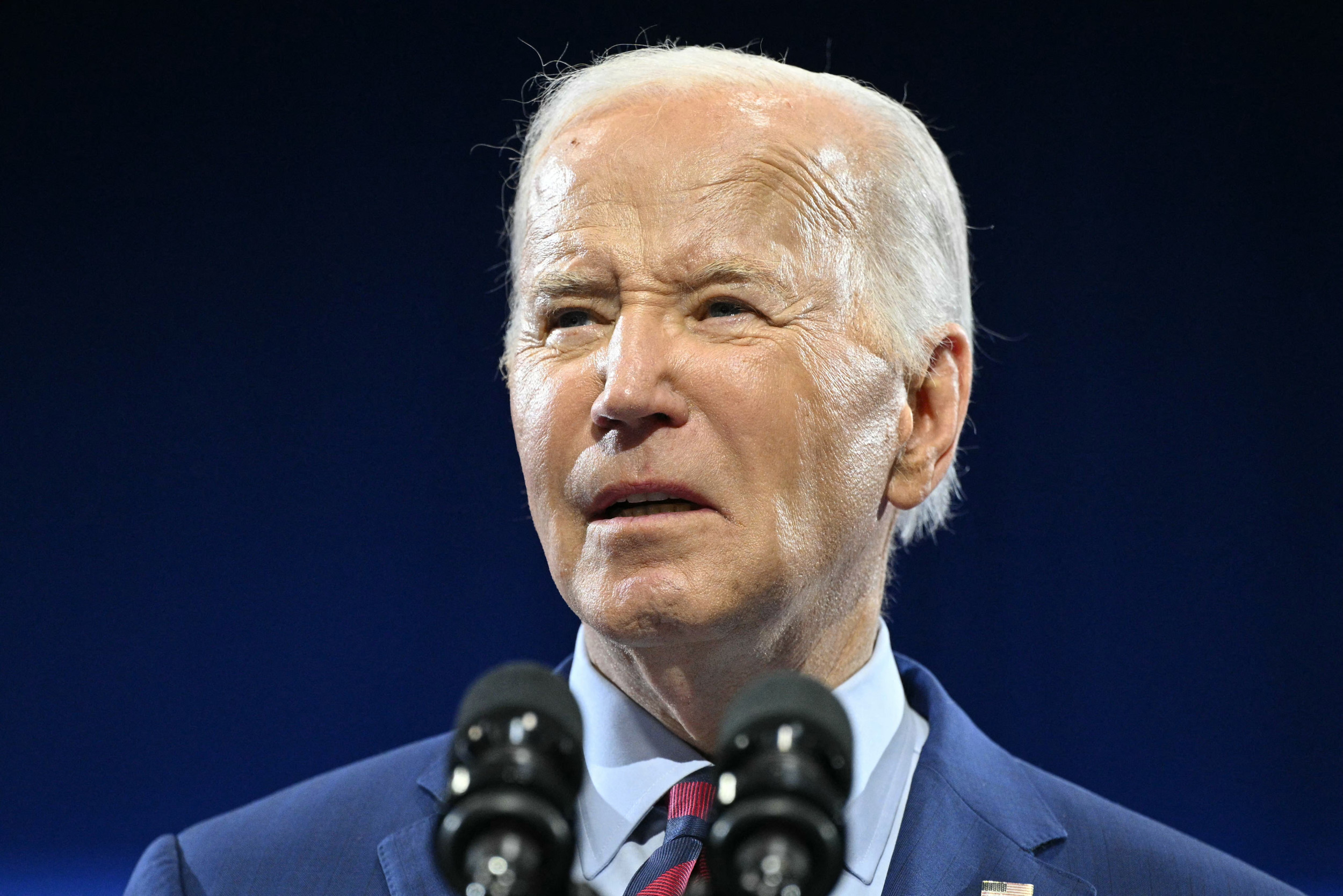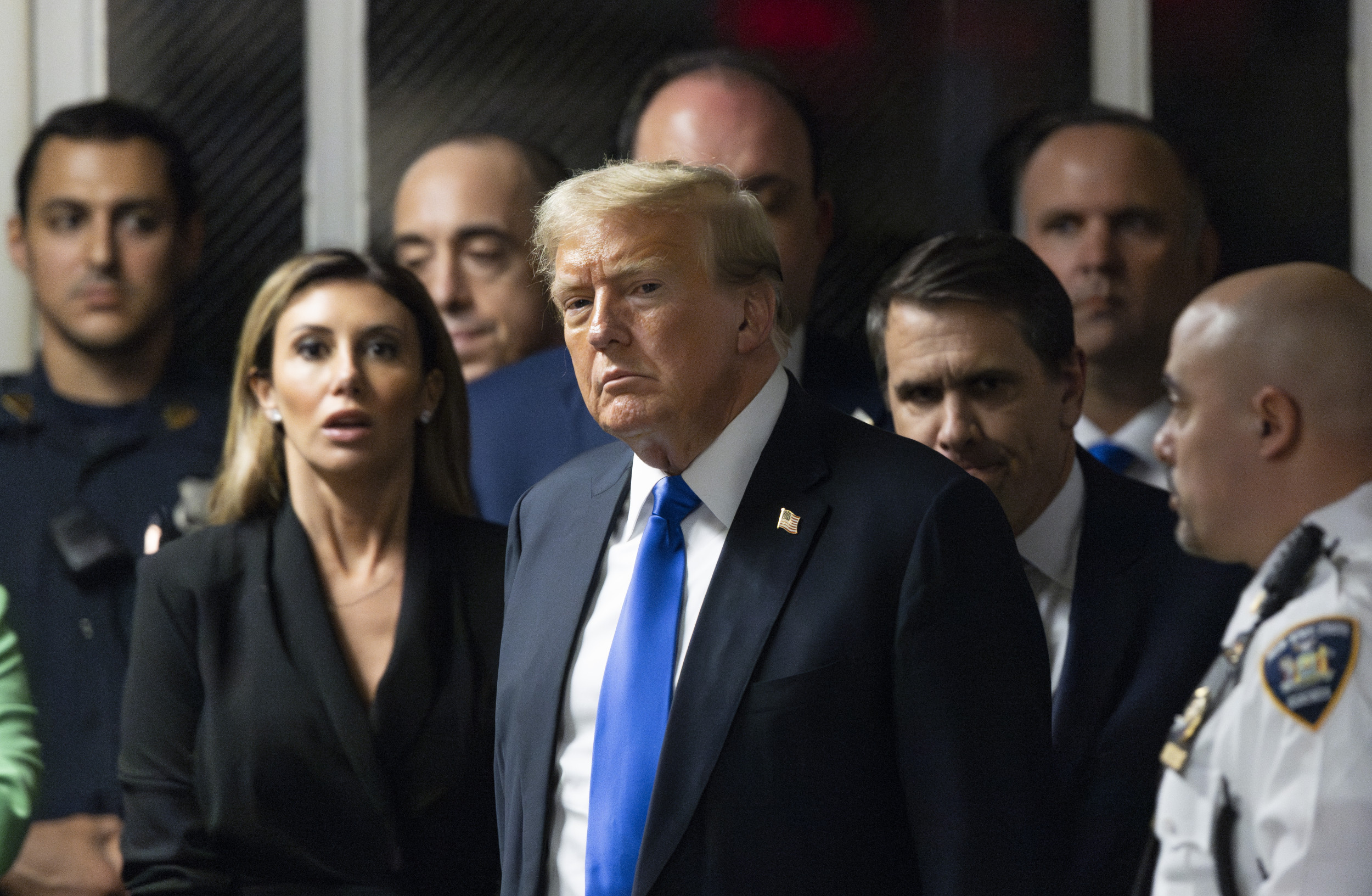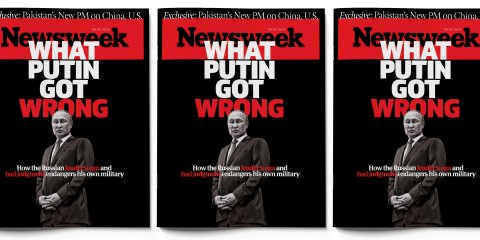
The Ukraine war has hit a shocking milestone: Six months after Vladimir Putin invaded, it's still on. Virtually nobody—and certainly not Putin himself—thought Ukraine could hold the mighty Russian military at bay, from late February through August, with only a moderate infusion of weapons from the West, some supportive declarations from Western leaders and a smattering of "We Stand with Ukraine" signs on U.S. lawns.
Ukrainian defenders have indeed been ferociously determined, while Russian troops have had to contend with bad battlefield leaders, inferior weapons and an unworkable supply chain. They've also been hobbled by Putin himself. He misread the world situation and personally ordered a disastrous invasion, looking to overthrow the government in Kyiv. He directed a botched effort to take Donbas, depleting the Russian armed forces in the process. He has ignored, overruled and fired his own generals (while another dozen have died in the war); and in fear of angering him, his generals have withheld key information from the Russian leader, according to U.S. intelligence officials who have been watching the war. Putin has equally battled with the Russian people, cracking down on domestic freedoms and hiding the truth about Russian losses, moving the dead and injured under cover of darkness and delaying family notifications.
U.S. military and intelligence leaders tell Newsweek that they've been startled by much of what they've seen. But the most significant insight they've gleaned is the extent to which Russia's president undermines his own men.
"Putin, like every other dictator we've known in the modern era, thinks he knows better, more than his own military, and more than any experts," one senior intelligence official who works on Russia (and requested anonymity to speak frankly) tells Newsweek. Putin served only a few months in the Soviet military in 1975, reportedly in artillery, before becoming a long-serving KGB officer. As head of the Russian government for the past 22 years, he has been behind three wars on the periphery of the country, as well as operations in Syria.
Those wars fed his belief that he was Russia's top general, persuading him, as well, that the Russian armed forces had wholly modernized and updated, becoming infallible. Now, the Russian leader's bad judgment and gigantic ego have become the greatest determinants of how the Ukraine war will end. Putin may survive losing the Ukraine war, but the Russian military has been decimated and the country brought to the brink of ruin.
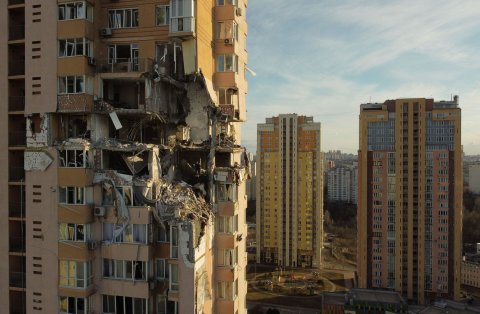
The First Mistake
When President Putin gave the order to invade Ukraine, all U.S. intelligence agencies now agree, he was convinced the Russian army would be greeted with gratitude as they fanned out to liberate the waiting populace. Putin had been telling himself and the Russian people for so long that the two countries were one, with shared history, culture, religion and even language, he apparently started to believe it.
After grabbing Crimea and parts of Donbas in 2014, Putin planned a second invasion, thinking that Ukraine had weakened even more in eight years—led, as it was, by a literal former comedian whose most celebrated previous victory was on the Ukrainian version of Dancing with the Stars. The February invasion was designed to overthrow Volodymyr Zelensky and take over the entire country, and Russia deployed tens of thousands of troops in Belarus to Ukraine's north, threatening Kyiv.
Given Russia's overwhelming numerical superiority, Putin expected the government in Kyiv to fall in as little as 72 hours. In some ways, the West contributed to this mindset by loudly overestimating Russia's capacity for war and underestimating Ukraine's ability to defend itself. But it was Putin alone who believed that Ukraine's weakness and his numbers meant a certain and swift victory.
The Kyiv front stalemated almost immediately. Everything about the assumptions of the Russian war plan fell apart. The ground force failed to move quickly enough, dependent as it was on clogged roads and quickly out-ranging its own supplies. Special forces and airborne troops landed and found themselves challenged and surrounded. Air and missile forces intended to disable Ukraine's defenses, mirroring American practice, missed their targets or did not apply enough (or the right) effort, failing in that mission as well.
"He thought he could establish his dominance over Ukraine very quickly," CIA Director William Burns said at the Aspen Security Forum last month. "It's hard not to see this as a strategic failure at this point for Putin and Russia."
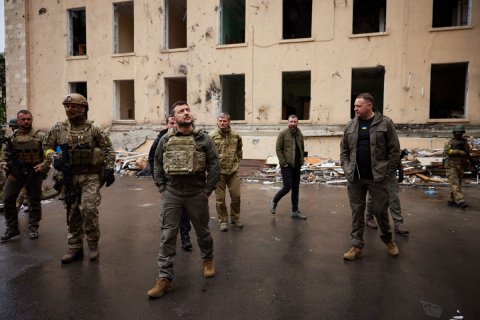
No Plan B
As the war has gone on, Ukraine has managed to shift tactics, especially with its new Western arms and ammunition. "We do not have the resources to litter the territory with bodies and shells, as Russia does," Ukraine's Defense Minister Oleksii Reznikov says. For Ukraine, he says, "it is necessary to change tactics, to fight in a different way."
Symbolically and literally, Ukraine's shift in strategy is being credited to its acquisition of the American HIMARS, the high-mobility artillery rocket system. In some ways, HIMARS is merely a euphemism for the entire panoply of U.S. and Western European supplied multiple rocket launchers (and long-range artillery), their most significant feature not necessarily being their range but their precision-ground rockets and projectiles. This allows less effort to have the same effects, as the long-range attacks on the Dnieper bridges and Russian bases have demonstrated.
But Putin remains stuck, unable or unwilling to respond to changed conditions on the ground. Russian soldiers and the supplies they need are increasingly in short supply, and Russian tactics, tightly controlled by the Kremlin, remain stubbornly frozen.
Putin is reported to be furious with his generals, multiple U.S. intelligence sources tell Newsweek. But the greatest miscalculation was his insistence that his forces open four separate fronts, in the north against the capital, in the east against Ukraine's second largest city Kharkiv, in the southeast against Donbas and in the far southwest driving toward the Ukrainian heartland and the port city of Odesa. In this expansive strategy assuming rapid victory, Putin wasn't interested in longer-range war planning. He had no Plan B.
Now, Moscow can't increase the number of its missile strikes because it has already depleted its overall supply. It can't increase air strikes into Ukraine's own rear because its planes are still vulnerable to air defenses (and their performance hasn't impressed). The ground forces have lost more than a third of their capacity and don't have any blitzkrieg left in them. This largely leaves short-range artillery and rockets to mete out damage before the troops inch forward. Russia does not have unlimited capacity to wage war, and though Putin has continued to drive the armed forces in its dogged frontal attack, it is ultimately a losing strategy.
Ukraine, moreover, despite its heavy losses, is now able to mobilize seven times as many troops as Russia has on the ground—so much so that manpower is no longer an issue for Kyiv. Ukraine's pool of military manpower has always been larger than it's been portrayed by the news media, and the country has been inundated with volunteers. Many Western observers seem to miss the fact of Ukraine's superiority here, still living in an era when America was fighting Saddam Hussein and his "fourth largest army in the world." Observers should know by now that numbers can be deceiving, and should have learned also to appreciate the impact of modern weapons. A military can shoot a lot of artillery or drop a lot of bombs in a conflict, but a few well-aimed weapons, hitting the right targets, has a greater effect. Ukraine now excels at this.
"Putin was wrong in his assumptions about breaking the alliance and breaking Ukrainian will," Burns says. And because things have gone so wrong on the ground, Burns says, the CIA believes Putin "has shrunk his objectives." Putin is no longer seeking to take over Ukraine or hold territory beyond Donbas.
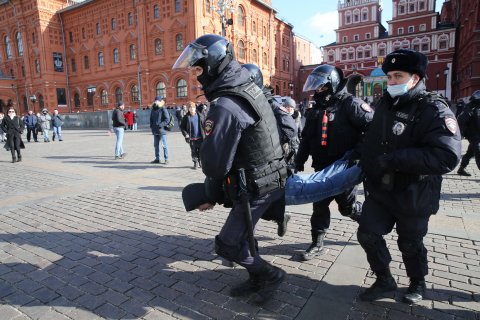
Trust Fail
Barely three weeks into the war, Putin made the decision to withdraw from the Kyiv front. He fired battlefield commanders and even installed a new general as commander-in-chief in the south. Putin fought with his own intelligence chief and defense minister and sidelined naysayers and skeptics, according to multiple U.S. government sources. And then Putin made things even more complicated: He undermined the plan to advance on the Donbas front to capture territory—the central mission—by insisting on expanding the southern goal, declaring that all of Ukraine along the Black Sea coast would be taken.
The move widened the trust gap between Putin and the uniformed military, said Lt. General Sir Jim Hockenhull, director of British military intelligence, in early August.
"Political meddling by the Kremlin is taking its toll," a senior American military intelligence official, granted anonymity to speak candidly, tells Newsweek. "Putin screams for more innovation while at the same time insisting on strict centralization of decision-making. Without decentralization and openness to accepting initiative and risk on the battlefield, you're back to a rigid strategy. Thus the reversion back to Russian reliance on firepower, long-range strikes by artillery, MRLs [multiple rocket launchers] and missiles." Russia is lumbering forward while causing great damage as a result. There is no chance to get behind the Ukrainian defenders.
Putin's flaws and failures have been significant, but the war has also been a merciless disrobing for the Russian military. Though much was written in the past few years about Russia's new "hybrid warfare" doctrine—combining its numerical advantage in troops with its special operations and cyberwarfare—none of that has made much of a difference in Ukraine. The rest of the traditional armed forces—the tanks, infantry and artillery arms—have meanwhile been debilitated by systemic problems. According to observers of the Russian military, widespread corruption, an archaic and damaging hazing system and a ruthless assignment policy that ignores the fatigue and mental state of those fighting has left an exhausted, fearful, demotivated and insubordinate ground force. The number of soldiers who have walked away from the battlefield or refused to fight is at epidemic levels, according to intelligence observers. As many as 80,000 Russian troops have been killed or wounded in Ukraine; the Russian Ministry of Defense is at the bottom of the barrel in terms of finding and strong-arming people to serve, offering bonuses and benefits and yet still failing to man the force.
Though there has been much criticism of Russian mercenaries—especially those from the private Wagner group who have augmented the uniformed armed forces and employ more brutal tactics—they have become integral to the war effort. Moscow is bringing in contractors precisely to avoid the paperwork and the laws that govern conscription, soldier rights and pay. They have also raised Chechen and other "volunteer" battalions, many of which have been mustered outside the laws governing contracts and conscripts. And with so many young Russian men and women declining to fight in Ukraine, Russia is trying to entice prisoners and other disadvantaged civilians to join, granting them special pay and veteran status immediately upon their arrival.
Putin is also instituting a new nationwide youth movement reminiscent of the Pioneers of the Soviet era—a program that U.S. intelligence says is aimed as much to militarize society and create support for the armed forces as it is to counter the growing infiltration of global media and Western culture into Russia. Press and internet freedoms are increasingly being targeted on the pretense that a free press is promoting "fake news" about Ukraine. Any sympathies citizens might express for the human cost of the war is being blamed on "excessive permissiveness" in society. Thousands of anti-war demonstrators have been arrested since the war began. The effect of Putin's crackdowns on Russian society is difficult to gauge, but U.S. intelligence officials tell Newsweek that the CIA sees that Russians who can afford to leave the country are leaving, with the number of those who left and didn't return doubling year over year—as many as two million people since the war began.
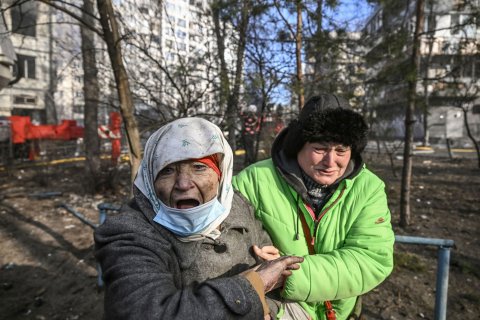
The Nuclear Option
With an inability to change strategy on the ground and lacking the manpower and equipment to further escalate, Putin can accept negotiations or disingenuously declare victory. Or he could believe that a nuclear demonstration is his best path to victory (or survival). Putin's nuclear weapons continue to be watched "very, very closely," Sir John Hockenhull said earlier this month. U.S. leaders have worked to lower the nuclear temperature and rhetoric from the beginning of the conflict, quietly pressuring Kyiv not to attack targets on Russian soil for fear of escalation. This led to a tactical advantage for Moscow, able to attack (and supply its forces) from a Belorussian and Russian sanctuary, just miles across the Ukrainian border. In that way, nuclear weapons are effective: Putin's nukes have limited Ukraine and deterred the West from directly intervening.
On the other hand, it's very difficult to imagine Putin ordering their use. There is no military target lucrative or important enough to merit a nuclear weapon. Three-quarters of a million Ukrainian troops are spread out along a 1,500-mile-long front line, throughout the rear, and in Ukraine's many military and air bases. Compare that with some 15 million men facing each other on the front line in the Nazi Germany-Soviet European front in World War II. It was in this age of mass on the battlefield that the entire notion of "tactical" nuclear weapons was born.
The flaw in the thinking of nuclear advocates is in transposing these historic battlefields today, despite the fact that Russian forces barely number 110,000 soldiers on the ground in Ukraine. The ominous description of the Ukraine war as the "largest battle since World War II" perpetuates the view that nuclear weapons have battlefield utility. The mystery is whether Putin himself also believes that a nuclear weapon could be a war winner.
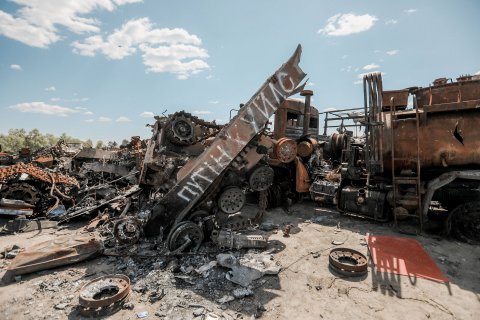
'Next Year'
Russia ended its decade-long war in Afghanistan in 1989. Will that withdrawal be the model for Ukraine? From the 72 hours to the weeks and then months of the war, Putin's army has consistently been portrayed as always moving forward while Ukraine is portrayed as barely holding its own, living on borrowed time. This picture of Ukraine's desperation has helped President Zelensky achieve the most important goal as Ukraine regrouped after the initial onslaught: bolstering his plea for the West to send arms and assistance before it was too late. In fact, it is Moscow that is scrambling to avoid another humiliating defeat both in the south and west.
Ever since the Russian withdrawal from the Kyiv region, and the start of Putin's second offensive in Donbas almost four months ago, Russia has been unable to deliver any knockout blow. It scored territorial victories in Severodonetsk and Lysychansk (at great human cost) and then took most of the Luhansk region, but Putin's army then stalled again into a stalemate. When Russian ground troops have moved forward, it has been at an excruciatingly slow pace and at great cost, the ebb and flow of warfare steadily weakening Moscow's demoralized force. U.S. and NATO intelligence agree that Ukraine has suffered as many deaths and injuries as Russia, but the morale of the defending force remains strong. And while Putin sends exhausted Russian soldiers into the meat grinder, Ukraine has managed to bring in fresh troops and units, many of its strategic shifts specifically intended to protect and preserve Ukrainian soldiers on the ground.
With Putin at the helm, the fighting to take the other half of Donbas (the Donetsk region) has been more bombing than bullets. With its forces held back on the ground, Russia has reverted to its historic way of war, conducting air and missile strikes, shooting rockets, and pounding Ukraine's defenders with thousands of artillery shells daily. Ukraine has always been out-gunned here, but with new Western supplies it is increasingly able to engage in long-range strikes, applying quality over quantity, precision over brute force.
Further to the southwest of Donbas, the battlefield looks different. Russia is stuck on the ground and losing territory, its positions west of the wide Dnieper River cut off because Ukraine has managed to damage or destroy the major road and rail bridges over the river, cutting off Russian forces from supplies. U.S. intelligence observes Russia moving additional forces to the area, but also assesses that the 25,000 Russian troops west of the river are on the verge of being isolated.
Ukraine's shift—from holding the front lines to starving off Russia's front line forces by hitting their supplies—is ironically also prolonging the war. Attrition is no longer just a matter of killing troops and tanks on the front lines. Ukraine is attacking ammunition depots and supplies, fuel and other necessities of war behind the front lines.
Ukrainian Maj. General Dmytro Marchenko, a commander in the south, told RBC Ukraine, "Kherson will be liberated 100 percent." Marchenko isn't offering any specific dates when the Ukrainian counteroffensive in the Kherson region will bear fruit. "I would not like to make predictions," he says. "But if we have the amount of weapons that we were promised that we actually need, then, I think, we will celebrate victory in the spring of next year."
Putin thought the war would be over long ago. His tough and determined foes are looking ahead with confidence: "next year."
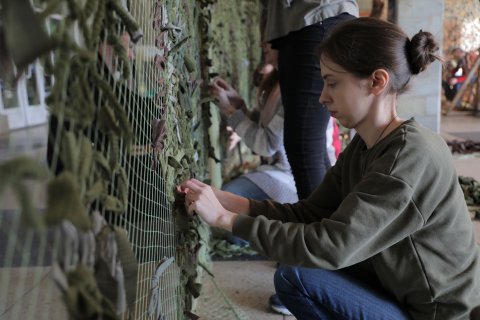
About the writer
William M. Arkin is an award-winning journalist and best-selling author of more than a dozen books on national security issues. ... Read more


